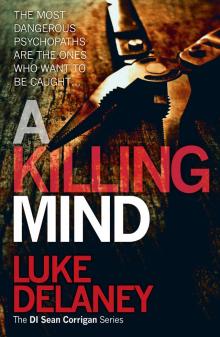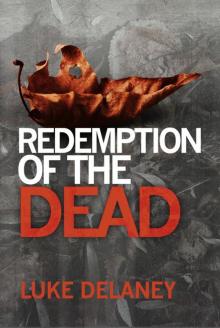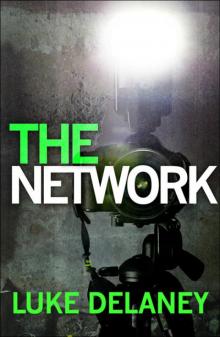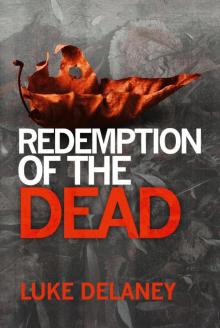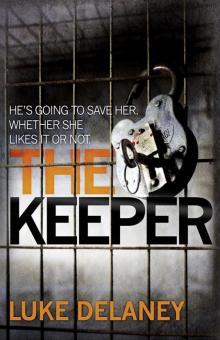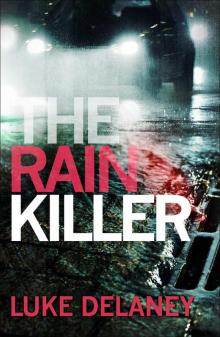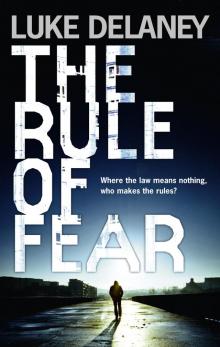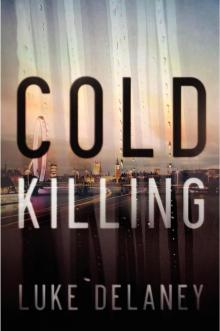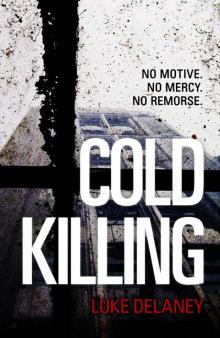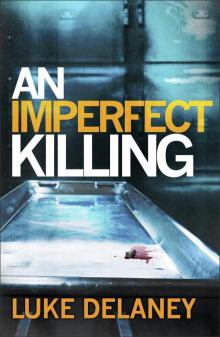Senseless, page 30




‘Why would our man want to kill Cramer?’ she asked. ‘Doesn’t make any sense.’
‘Because he knew Cramer was our prime suspect,’ he replied. ‘Find him. Kill him. And make it look like a vigilante killing so we stop looking for him. The investigation dies with Cramer.’
‘But there was no incriminating evidence against Cramer,’ she argued. ‘Surely, if it is our man, he would have left something incriminating at the scene?’
‘Maybe he has,’ he told her. ‘We just haven’t found it yet.’
Jones took a deep, steadying breath before replying. ‘Well after some of the cases I’ve been involved in, I can’t say it’s impossible. But one thing about your theory doesn’t stack up. As soon as he kills again, we’ll know Cramer isn’t our man. So what was the point in trying to pin the murders on him?’
‘He could change his method so much we don’t recognise it,’ Jameson argued without enthusiasm. ‘Or…’
‘Or what?’ she pressed him.
‘Or – he’s trying to stop,’ he told her. ‘Cramer dies and the killings stop and he walks away free as a bird.’
‘These type of offenders don’t just stop,’ Jones argued. ‘They can’t. You know that.’
‘Some do,’ he said. ‘It’s rare, but it happens. Maybe something has happened in his life that’s made him want to stop.’
‘Like what?’ she asked.
‘I don’t know,’ he admitted. ‘A relationship. An awakening. I don’t know, but something has changed. It started with the third killing, Ruby Richards. No sexual assault. No mutilation.’
‘But he still killed her,’ Jones reminded him.
‘He had no choice,’ he replied. ‘But there and then he appears to have changed his mind about going through with the rest.’
‘Not much of an awakening if he still killed her,’ Jones said. ‘And people like that don’t form relationships. Not real ones.’
‘Something else then.’ Jameson shrugged.
‘I’m not sure,’ Jones said. ‘It’s all a bit elaborate. My bet is he didn’t kill Cramer and Ruby Richards is just a blip in his offending. He’ll kill again and when he does, we’d better be ready.’
‘Let’s see what forensics find in Cramer’s flat before making any final decisions,’ he told her. ‘Before this joker makes us look like fools.’
Addis was working at his office desk, that was far more opulent than most ever seen in a police building, when his landline phone began to ring. He checked the display, but the number had been withheld. Not unusual for a phone that was mostly used for police business, but it meant the call was not coming from another police building, which immediately put him slightly on guard as he lifted the handset and answered it. ‘Hello,’ he said. ‘Assistant Commissioner Addis speaking.’
‘Mr Addis,’ a voice he recognised replied, without offering his name. ‘I assume you’ve heard the news?’
‘In relation to what, exactly?’ Addis asked, albeit without his usual air of superiority.
‘The murder of Brian Cramer,’ the man told him. ‘This would be extremely troublesome at any time, but in the current climate, given the allegations he made against one of your officers, it’s nothing short of disastrous. The Met need positive news right now, not this sort of scandal. The politicians and pressure groups are queuing up to put the boot in and make themselves look like they’re men and women of the people. You’re an easy target.’
‘We’re always an easy target,’ Addis told him. ‘I’m used to it by now.’
‘I don’t care if you are used to it,’ the voice replied. ‘If you look bad, then certain other people look bad. Powerful people who don’t like looking bad. Understand?’
‘I understand,’ Addis said, stiffening.
‘This DI Jameson,’ the man continued, his voice quieter and conspiratorial. ‘He has a very chequered past.’
‘He’s an active detective,’ Addis said, defending him. ‘He works on the edge. That’s why I put him where he is. Transgressions are always likely with someone as proactive as Jameson.’
‘Proactive?’ the man scoffed. ‘More like a liability. Surely current times call for a safe pair of hands. Perhaps a Bramshill graduate. Someone on the accelerated promotion scheme, just passing through the CID, instead of being tainted by it. Someone we can control.’
‘Hardly the sort of person who is going to give me what I need,’ Addis argued. ‘You don’t learn the sort of instinctive skills officers like Jameson have in a classroom. Even a Bramshill classroom.’
‘Times have changed,’ the man told him. ‘The public don’t want cops like Jameson anymore. Those days are over. They want clean-cut, softly spoken, social workers. Not Neanderthals. Jameson is a problem you need to fix. Understand?’
‘No need to be so concerned,’ Addis assured him. ‘Things are about to happen that will clip Jameson’s wings. It’s all been arranged.’
‘I hope so,’ the voice told him. ‘For your sake.’
Addis listened to the line go dead before leaning forward with a sigh and pressing the button on the phone’s small switchboard that called his secretary in the next-door office that doubled as a waiting room for people who had been summoned to see him. After two ringtones his secretary answered. ‘Yes, Mr Addis?’ she asked.
‘You can send him in now,’ he told her.
‘Yes, Mr Addis,’ she replied and hung up.
A few seconds later there was a knock at his door. ‘Come in,’ he called out, loud enough to be heard by whoever was on the other side. A moment later the door opened and Jameson entered.
‘You wanted to see me?’ Jameson asked.
‘Yes. Close the door,’ Addis instructed. Jameson did as he was told. ‘No need to take a seat,’ he added. ‘This won’t take long.’ He leaned forward again and pressed the same button to call his secretary, although this time the phone was on speaker mode.
‘Yes, Mr Addis?’ Jameson heard her say.
‘Have they arrived yet?’ Addis asked.
‘Yes,’ she said. ‘They’ve just got here.’
‘Good,’ he replied. ‘Please send them in.’
‘Yes, Mr Addis,’ she said before the line went dead.
‘Expecting someone?’ Jameson asked.
Addis said nothing as the door opened and Detective Superintendent Gooderson and DCI Greene entered. ‘I thought it would be better to do this here, rather than in front of your whole team. Less embarrassing for you,’ Addis said.
Greene stepped forward. ‘DI Ruben Jameson. I’m arresting you on suspicion of murdering Brian Cramer,’ she declared.
‘What?’ Jameson asked and laughed. ‘You can’t be serious.’
‘You do not have to say anything unless you wish to do so,’ she continued.
‘Save your breath,’ Jameson told her. ‘I know the caution.’
‘But it may harm your defence if you fail to mention when questioned, something that you later rely on in court,’ she continued. ‘Anything you do say can be used as evidence. Do you understand?’
‘I understand you’re wasting both our time,’ Jameson told her. Greene unclipped a set of handcuffs from her belt and stepped closer to him. ‘I don’t think so,’ he said, shaking his head.
‘It’s standard procedure,’ she insisted.
‘That won’t be necessary,’ Addis intervened, locking eyes with Greene who backed down and put the cuffs away.
‘Fine,’ Jameson said, breaking the moment of uneasy silence. ‘If this is the way it’s going to be, let’s get on with it. Unlike you, I don’t have time to play games. I have more important things to take care of.’
Chapter Twenty-Eight
Martin Thomas was alone in his flat unpacking several boxes containing soft furnishings. Things he hoped would make it look more like a normal home for the upcoming visit of Sophie. It was far more difficult than he’d imagined. He’d never given such mundane matters any thought at all and only had the few occasions he’d been in the homes of other people to help him, but he’d never really paid any attention to how they’d furnished their homes. In the end, he’d fallen back on the internet, taking inspiration from interior design sites and anything else that caught his eye. But as he unpacked, his mind wasn’t still as it would usually be. The calmness of thought he’d grown so used to had deserted him as his mind drifted to his childhood, then to Sophie and finally to the women he’d killed.
He was also feeling anxious about the future, despite his developing relationship with Sophie and determination within himself that nobody else needed to be sacrificed. No matter how hard he tried, he couldn’t work out why he was feeling so anxious. It was like looking at nothing but blue sky and bright sunshine, yet still being unable to shake off the strong feeling that a storm was coming soon. He tried to shake the feeling away and reassured himself that the storm had been averted by killing the slug that lived in its own slime that was Brian Cramer. But just as he began to feel more secure, a nagging doubt brought his anxiety flooding back. Giving the police what they wanted in Cramer was only part of the plan. The other relied on him not taking any more women or men. If he did, they would soon know that Cramer was nothing more than a decoy. Even if he changed his method significantly, there were things he would need to do to make it worthwhile. Without those things, the sacrifices wouldn’t give him what he needed, rendering them pointless. And then there was the determined-looking DI Jameson, who struck him as the sort of detective who would instinctively be able to recognise his hand, even if he did make changes. He took a deep breath to steady himself. All he had to do was never kill again, he told himself and he would be free to live his life as the half man, half god, he had become. No one would ever know of the journey he’d been on to reach this point. No one.
Jameson sat on the opposite side of a desk from Gooderson and Greene during an interview in Kennington Police Station. Greene had already completed the caution and legal formalities and was about to start questioning him when Jameson interrupted her.
‘Why bring me here?’ he asked. ‘I didn’t think it was used as a custody suite anymore. I don’t see any other prisoners around.’
‘We had it opened especially for you,’ Greene told him, with some glee. ‘Keep you away from prying eyes and wagging tongues.’
‘Very considerate of you,’ he replied. ‘You searched my house yet? Going to seize these clothes?’ he asked, tugging at his shirtsleeve.
‘All in good time,’ Greene told him. ‘Besides, as an experienced detective, I assume you would know how to dispose of incriminating evidence. But you can’t change your fingerprints or DNA, so we will be requiring both.’
‘You already have my prints,’ he reminded her. ‘Like all police officers.’
‘And as well you know,’ Greene said, ‘we can’t use those for the purposes of this investigation. We need you to consent to having them taken.’
‘Fair enough.’ He shrugged, having established that Greene at least knew some basic procedure. ‘What do you want to ask me?’
‘Did you kill Brian Cramer?’ Greene asked straight out. ‘Did you murder him?’
‘Really?’ he said, shaking his head. ‘Why would I want to kill him?’
‘To stop him testifying against you,’ Greene answered. ‘Because he was going to cost you everything. Your job. Pension. Not to mention sending you to prison. That’s a lot of motivation to kill.’
‘We were a long way from him ever testifying,’ Jameson told her. ‘There was no evidence against me, other than his lies. And there never was going to be because I didn’t assault him.’
‘Maybe,’ Greene mocked agreement. ‘But you couldn’t risk us finding some evidence to corroborate his accusations. You couldn’t risk him taking everything you had, could you?’
‘So I killed him?’ he asked with a smile as he shook his head.
‘Exactly,’ Greene replied.
‘For God’s sake,’ he said. ‘This is all bullshit. Cramer made it up in the hope of getting a payout. He was an experienced con. He knew the tricks of the trade. He knew we’d rather pay out than risk an expensive civil case. He was just playing the game for a little profit.’
‘So he deliberately got himself beat up just to sue us?’ Greene asked.
‘Maybe,’ he said with a shrug. ‘Or maybe he just got in a fight or someone didn’t like the look of him or maybe it was vigilantes. How the fuck am I supposed to know? But it wasn’t me and I didn’t kill him.’
‘Perhaps you can tell us where you were yesterday evening?’ Gooderson intervened.
‘From what time?’ Jameson asked.
‘Well,’ Gooderson replied, ‘we believe he was murdered sometime between five and seven in the evening?’
‘Where did you get those times from?’ Jameson asked, his interest pricked by the information.
‘State of the body,’ Gooderson said with a shrug. ‘Information from the neighbours.’
‘That’s a busy time of day to choose to kill someone in their own home,’ he observed. ‘Building like that must have CCTV. I’m pretty sure I saw cameras when I was there. You checked it yet?’
‘Yes,’ Greene took over again. ‘Strange thing is it had been disabled. The sort of thing a seasoned detective would make sure of before entering the building, don’t you think?’
‘Half the people in the block are ex-cons,’ he answered. ‘Probation Service use it as a halfway house. People like that don’t like being watched. There’s probably a dozen or more people in there with cause to disable the CCTV. You’re in fantasy land.’
‘If you could just tell us where you were yesterday evening?’ Gooderson stepped back in.
‘I was at work, in my office,’ he told him. ‘Then I headed home.’
‘Where’s home?’ Greene asked.
‘Teddington,’ he said.
‘What time did you leave work?’ she asked.
‘I’m not sure,’ he admitted. ‘Must have been around six.’
‘We can check that easily enough,’ Greene told him. ‘You did sign yourself off duty on the system, didn’t you?’
‘No,’ he admitted with a sigh. ‘I forgot to log off.’
‘Convenient,’ Greene said, nodding her head.
‘It happens,’ he replied, sounding disinterested.
‘Did you go straight home?’ Greene asked.
‘Yes,’ he answered.
‘You sure?’ she checked.
‘I’m sure,’ he insisted firmly.
‘How did you get home?’ she asked. ‘We might need to check the CCTV.’
‘I walked to Vauxhall, then caught a train to Teddington,’ he told her.
‘Did you change trains anywhere?’ she persisted.
‘No,’ he told her. ‘I got lucky. The first train was direct to Teddington.’
‘And when you got back to Teddington, did you go straight home?’ Greene asked.
‘Yes,’ he answered. ‘No, wait. I went to M&S first to pick up something to eat. I used my credit card to pay, before you ask. I can show you the payment.’
‘Even if you did travel to Teddington and used your credit card in M&S,’ Greene explained, ‘you could still have travelled to Sutton and killed Cramer. All it proves is that you’re smart enough to lay an alibi for yourself.’
‘That’s ridiculous,’ he told her.
‘Did you stay at home all night?’ Greene asked.
‘Yes,’ he insisted. ‘I didn’t leave again until the next day to go back to work.’
‘Can anyone confirm that?’ Greene pressed him.
‘Only my daughter,’ he told her. ‘Jenny.’
‘Then we’ll need to speak with her,’ Greene said.
‘No chance,’ he said, shutting it down. ‘Leave Jenny out of this. I don’t want her being upset. The kid’s been through enough already. Do what you’ve got to do but leave Jenny out of it.’
‘That might not be possible,’ Greene said with obvious glee.
‘Make it possible,’ he demanded.
‘I’ll run my investigation however I like,’ Greene told him.
‘And I’ll run mine however I like,’ Jameson countered. ‘Speaking of which, are we finished here, because I need to get back to work.’
‘You won’t be going back to work,’ Greene told him. ‘You’re off the investigation. And you’re suspended from duty pending further notice.’
‘You can’t do that,’ he argued.
‘I can and I have,’ she told him.
‘Addis won’t allow it,’ he said in hope.
‘He already has,’ Gooderson said, breaking the news.
‘Bullshit,’ Jameson replied.
‘I’m afraid it’s true,’ Gooderson said, sounding apologetic. ‘But you are free to go. Unconditional bail, although I’m sure I don’t need to remind you to stay away from the investigation and that includes contacting colleagues connected with it. If you do, bail won’t be unconditional next time, assuming you even get bail.’
‘This is madness,’ he told them. ‘There’s a killer out there and I’m the only one with any idea of how to find him.’
‘The killer is dead, Jameson,’ Greene insisted. ‘Only question remaining is who killed the killer.’
‘You don’t know that,’ he argued. ‘There’s no definitive evidence to prove it was Cramer.’
‘Only a matter of time,’ Greene said dismissively. ‘Not that it’s any of your concern. What you need to do now is go home and stay out of the way. But not before you provide your fingerprints and a DNA sample.’
‘Fine,’ he reluctantly agreed, eager to be away and make a phone call to an unlikely ally. ‘Take my samples. It won’t prove anything. You already know I’ve been in Cramer’s flat before.’
‘We’ll see,’ Greene said, as if she knew something important she hadn’t told him yet.
‘Yes,’ he agreed. ‘We will.’
Martin Thomas was out walking through a land-based wind farm, looking for any faults in the giant wind turbines that may need to be addressed, when his mobile phone began to vibrate in his pocket. He pulled it free and checked the caller ID, fully expecting it to be from someone he could ignore, but he saw it was Sophie. He fumbled to put his hearing aid in as fast as he could, hoping she wouldn’t hang up in the meantime. She didn’t.











